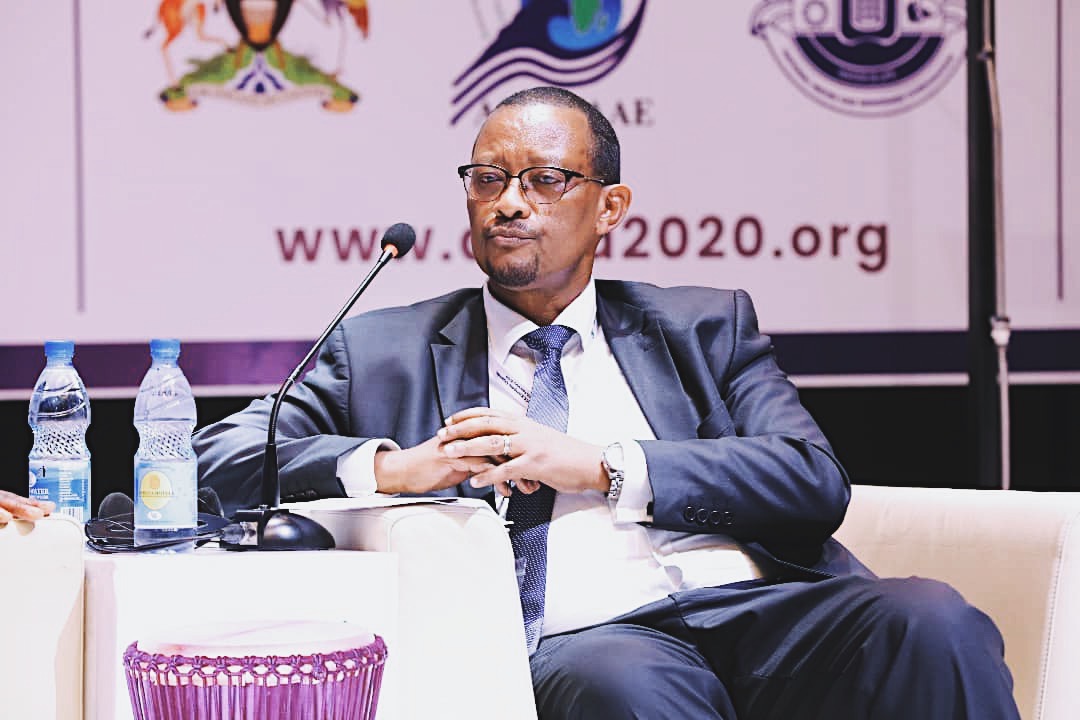Speak Up Africa`s webinar highlights centrality of safe water, sanitation in fight against COVID–19
Recently, Speak Up Africa hosted an online conversation with Dr. Canisius Kanangire, executive secretary of the African Ministers` Council on Water (AMCOW). It was the second episode of its ‘Virtual Bridges’ webinar series themed: “Breaking the Pandemic Circle: Improving access to safe water, adequate sanitation and hygiene (WASH).”

Handwashing – the simple act of rubbing one`s palm and fingers together using soap and clean running water to remove germs such as viruses and bacteria – has long been identified by the World Health Organization (WHO) as key to avoiding the transmission of infectious diseases. It is considered a critical factor in preventing the spread of COVID–19, the respiratory illness caused by the novel coronavirus. In the absence of a vaccine for the virus, access to safe water, adequate sanitation and hygiene (WASH) has more than ever before become necessary.
Yet, about 3 billion people worldwide do not have access to soap and water at home; with 900 million children lacking access to soap and water in schools, says a 2017 joint report on handwashing facilities by the WHO and the United Nations Children`s Fund (UNICEF). In sub-Saharan Africa, 83% of healthcare facilities have no water services, 80% lack sanitation services while 49% have no hygiene services, according to a joint 2019 report by WHO and UNICEF.
It was on this premise that Speak Up Africa recently hosted to a virtual discussion, Dr Canisius Kanangire, executive secretary of AMCOW, an inter-governmental, non-budgetary institution working under the AU’s Specialized Technical Committee on Agriculture, Rural Development, Water and Environment. AMCOW seeks to provide political oversight on water resources and sanitation in Africa. The online event focused on the importance of access to safe water, adequate sanitation and hygiene in the fight against the coronavirus pandemic in Africa.
“Poor access to WASH services impact health, economy, and development prospects. We know that handwashing with soap and water is the most efficient way of stopping the spread of COVID-19; yet, vulnerable populations lack access to safe water, adequate sanitation and hygiene and are most exposed to the virus. Thus, we need to pay special attention to marginalized and vulnerable populations to ensure that these inequities are reduced. It is also crucial to increase financial allocations and support sanitation and hygiene policies to ensure that no one is left behind,” Dr Kanangire told the webinar participants.
“Millions of Africans do not have access to water in their homes and live with the burden of fetching water every day. That is a challenge, especially when COVID–19 safety measures recommend regular handwashing, confining and physical distancing. These measures are difficult for vulnerable populations to implement without access to WASH services,” adds Kanangire.
In response to this phenomenal challenge, Kanangire said AMCOW was working to support AU Member States achieve their water, sanitation and hygiene related targets through political leadership, policy direction, and advocacy. He noted that one of AMCOW’s main priorities was promoting knowledge driven policy and decision-making processes in the water and sanitation sector including strong monitoring and evaluation systems.
“AMCOW believes COVID–19 is not only a public health matter; without access to safe water in homes, it is nearly impossible to effectively comply with safety measures. We need to bring water in homes and work with financial institutions to ensure we have access to necessary emergency funds to solve these issues. Thus, partnerships are important to overcome this pandemic and make Africa more resilient to crises, it is important to have a stronger coordination and synergy at country, regional and continental levels,” noted Kanangire.











